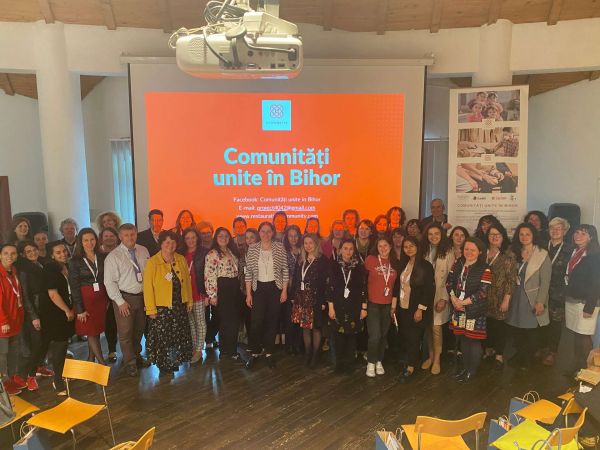News
News
Special visit to Caritas Eparhial Oradea Association
We were honoured by the visit of Her Excellency Siri Barry, Ambassador of Norway to Romania, Bulgaria and the Republic of Moldova, and Maria Dolores Neagoe, Counsellor for EEA Grants and Norway at the Embassy of the Kingdom of Norway in Romania, at Caritas Eparhial Oradea Association.
Adela Popa-Ghițțulescu, Executive Director of Caritas Eparhial Oradea Association, presented the main social services developed by the organisation and their positive impact in the local community. Among the projects mentioned was our project "Local development for disadvantaged communities in Bihor County", funded by Norwegian Grants.
It was a joy to highlight the activities carried out at the after school centre in Ioaniș, where we support children not only with schoolwork but also by preparing them for life. Counselling and medical services for young people and adults were also discussed, highlighting the use of restorative practices in the project.
Thank you to Her Excellency the Ambassador and the Counsellor for their visit and their continued support of our projects!
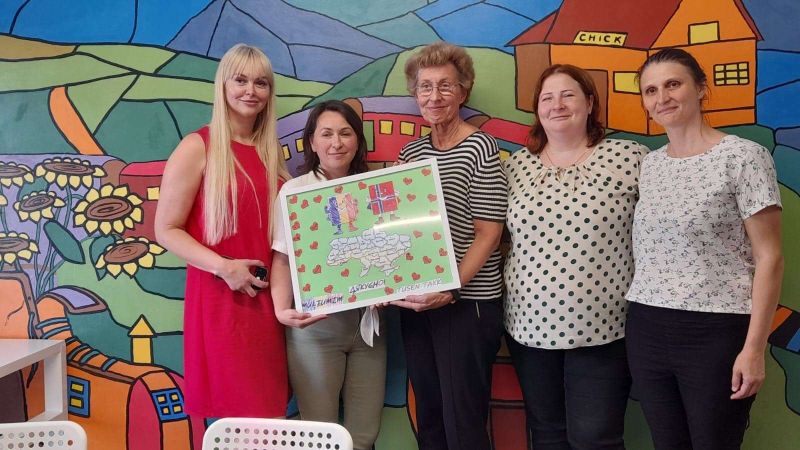
The project team supports the dissemination of restorative practices at universities in Oradea
In the last month, our team had the privilege to participate in two events to disseminate restorative practices, organized in collaboration with the University of Oradea and Emanuel University of Oradea.
On 22 May 2024, we had the honour to hold an event at the University of Oradea, where we shared our knowledge and experiences in restorative practices. The event was dedicated to presenting methods of conflict prevention and management, as well as promoting a positive learning environment. We appreciate the generous invitation of Prof. Habil. Dr. Claudia Bacter in this regard.
Prior to this meeting, on 17 May 2024, our team participated in a similar seminar organised at Emanuel University Oradea. We were delighted to discuss the application of restorative practices with specialists and students and are grateful for the active participation of all those present.
The dissemination of restorative practices is a pillar of our project "Local development for disadvantaged communities in Bihor County". This project aims to bring positive changes in our communities, providing sustainable solutions for conflict prevention and management, supporting education and personal development of young people and adults in disadvantaged areas.
We thank all those involved in these events and look forward to continuing our collaboration and expanding the impact of these practices in as many areas as possible.
Photos: in Gallery.
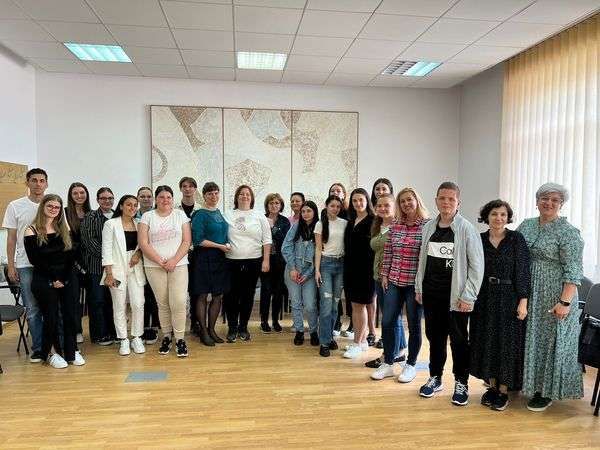
Premianții concursului de desen au pornit in aventură!
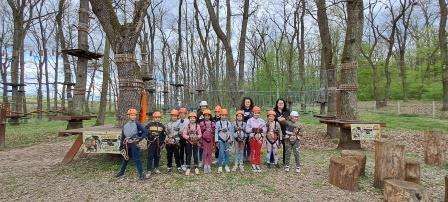
Reflecting on the positive impact of restorative practices in our communities
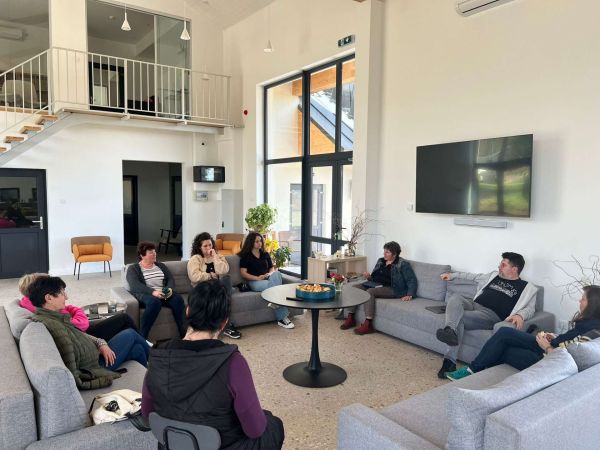
Project results
The results obtained from the implementation of the project PN402 - Local Development for Disadvantaged Communities in Bihor County (United Communities in Bihor) bring us many satisfactions.
Besides the innovative public-private partnership between the Municipality of Marghita and the three non-governmental organizations - Kécenlét Association, Caritas Eparhial Oradea Association and Skyhøyt Live Scene from Norway, without which we would not have been able to implement the project efficiently, we have also created links between two communities - Cheț village and Finiș commune in Bihor.
We developed integrated social services for 496 members of the two vulnerable rural communities (educational, socio-medical and employment services). We introduced the restorative approach as a model for transforming the way we approach relationships and conflict resolution and supported our teams through training, exchange of experiences and transfer of best practices. Project beneficiaries expressed a high level of satisfaction with the services provided, highlighting the positive impact on the lives of people in vulnerable communities.
Although the project ended on 29/02/2024, we continue to build on our achievements and extend the benefits of the services provided and the restorative approach to as many people in Cheț and Ioanis as possible.
Details: here.
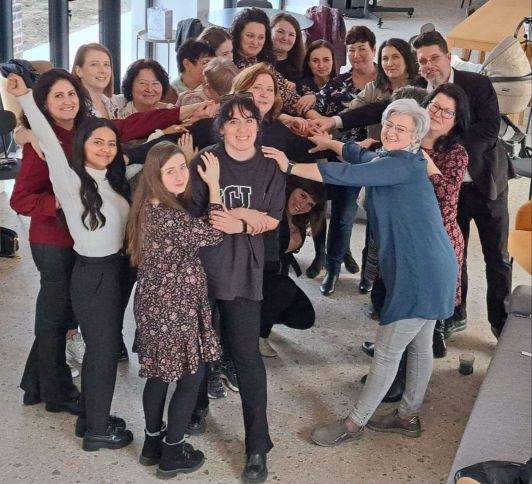
Restorative Practice Resource Centres
Both in Cheț and Ioanis, community members and all those interested in the theme can benefit from the help of community facilitators in applying restorative practices. The role of these people is vital in the community to identify problems, issues of concern and organise workshops to prevent conflict, discrimination, etc. and to contribute to long-term community development.
In Ioanis the Resource Centre for Restorative Practices operates in the newly renovated and furnished building in the St. Martin's Afterschool Centre, while in Cheț at the Nest Day Center.
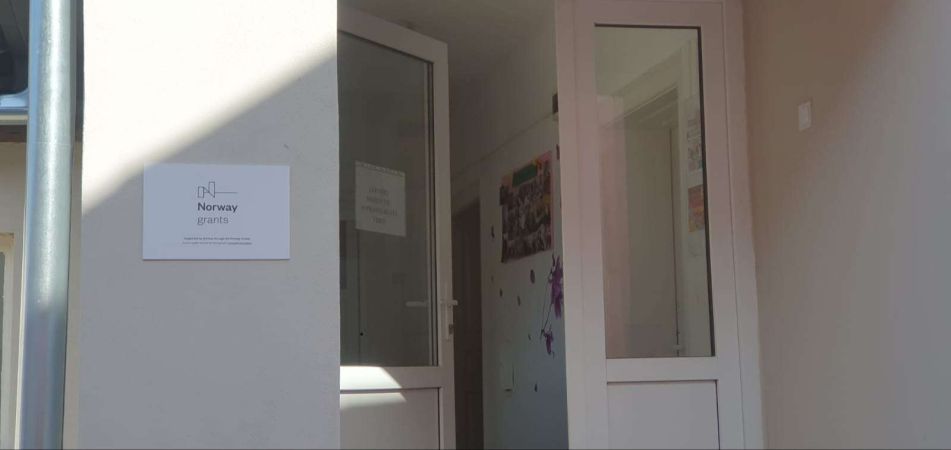
Final project conference
The final conference of the project took place as we like it, in a circle, in the presence of the representatives of Marghita Municipality (Project Promoter), the project partners - Kécenlét Association, Caritas Eparhial Oradea Association - and guests. We celebrated together 30 months of project implementation, with significant results for the communities of Cheț and Finiș in Bihor County.
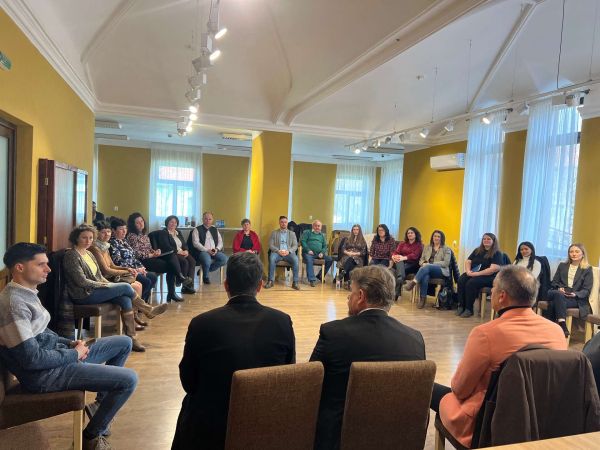
Repair works have been completed at the Centre in Ioaniș
St. Martin's afterschool centre in Ioannis received a new coat - the repair works were completed and received on Wednesday, 14/02/2024 in the presence of the beneficiary, Caritas Eparhial Oradea Association, the representatives of building company, the technical responsible and the site supervisor. The works consisted in: repairs to the roofing tiles, thermal insulation of facades and exterior painting, landscaping of the courtyard, thermal and plumbing installations, in the C1 part of the building. Following the works, an activity room, 1 library and toilets for adults were fitted out and furnished, providing a modern and safe space for children and young people in the area.
Photos: in the Gallery
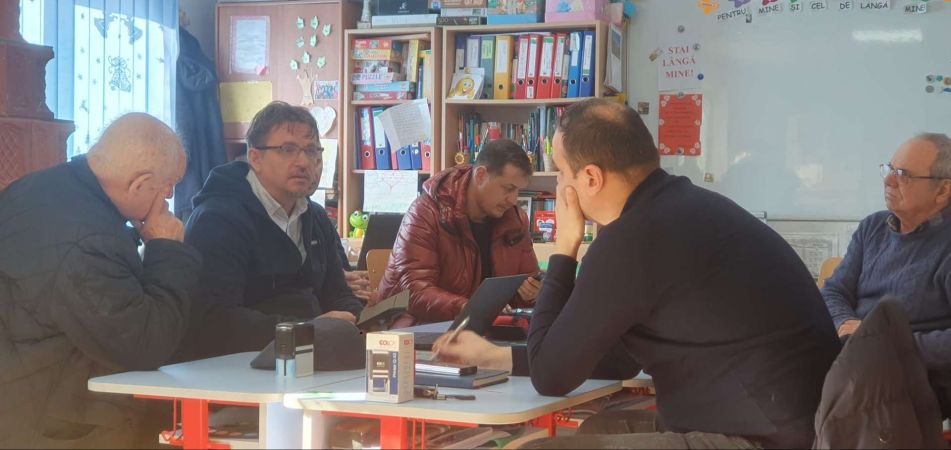
The due date for collecting success stories has been extended!
📢 We are still looking for collaborators who are applying restorative practices - 15 December 2023 is the new date by which we expect your success stories in applying restorative practices!
We welcome you to share your story, which we will include in the Restorative Approach Best Practice Guide in Romania. We are interested in hearing real stories from the field of restorative practice in Romanian communities.
To respond to this invitation, please email proiect4042@gmail.com, a text by 15 December 2023 about how you have experienced either as a participant or facilitator, the ways in which what at first appeared to be a conflict has been transformed by the restorative dialogue process.
We offer you two ways to submit:
Write your own story in 2000-4000 words
- OR-
Outline a few lines about what the problem was and how it was resolved, and we will write it for you. Once the story is accepted, we will work with you to complete it.
We are especially interested in stories that reflect:
Diverse cultural perspectives and identities
Empowering those whose voices have been and still are marginalized, while keeping an open invitation to honor all experiences and stories for consideration.
Providing examples of how the process of restorative practices is most powerful when facilitators probe the needs of the community served
Presenting transformation, resistances and breakthroughs
That the restorative approach actually leads to stronger outcomes for all involved
It is our stories that can be more resonant, perhaps even more so than research and data. In this way, we can support the evidence and arguments for more widespread adoption of restorative practices.
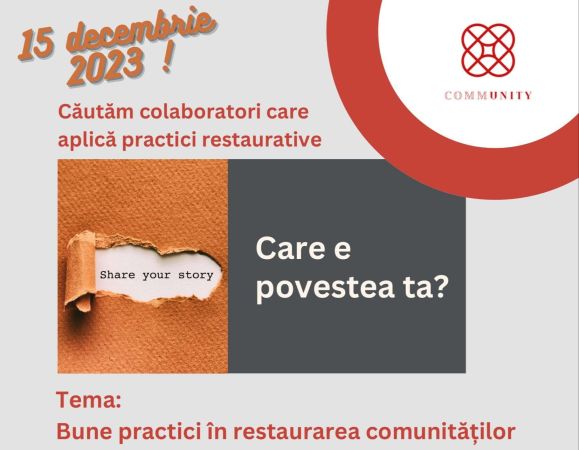
Repair works in full swing!
The aim of the works is to carry out the activities for the target groups in optimal conditions. In the building affected by the works, C1, activities with young people and adults will be carried out, so an activity room, a library and sanitary facilities for adults will be set up. During the works, a room in C3, currently used as a festivities room, will be made available as an alternative location for activities.
The order for the commencement of works was issued on the 3rd of November 2023 and the duration of the works is maximum 4 months.
Presentations on social inclusion at Partium Christian University
A series of presentations took place at Partium Christian University of Oradea, addressed to a group of Erasmus teachers and students and the project team. The experience gained during the FRDS study visit to the Council of Europe in September as well as the United Communities in Bihor project were presented, valuable resources were shared, animated with discussions and games on social inclusion of Roma, minorities and other vulnerable groups. The work of the Kécenlét Association and some elements of the restorative approach were also presented. The meeting was inspiring for all participants, and we hope that we have taken another important step towards a fairer and more inclusive society.
Download the presentation including European Council handbooks and resources here.
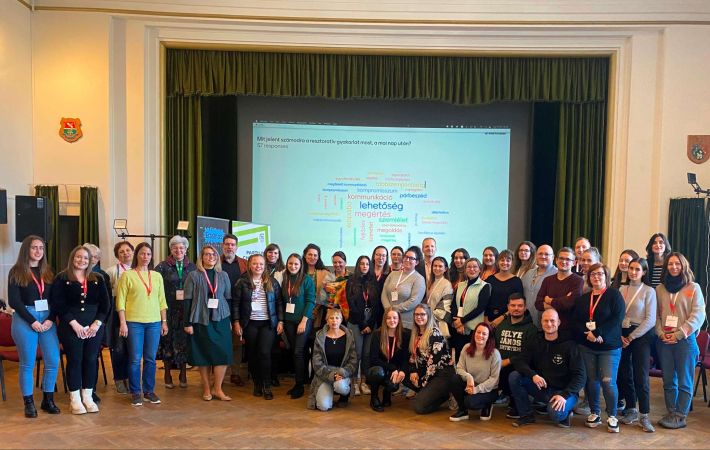
The international conference "Restorative practices - an exercise in building resilience in communities
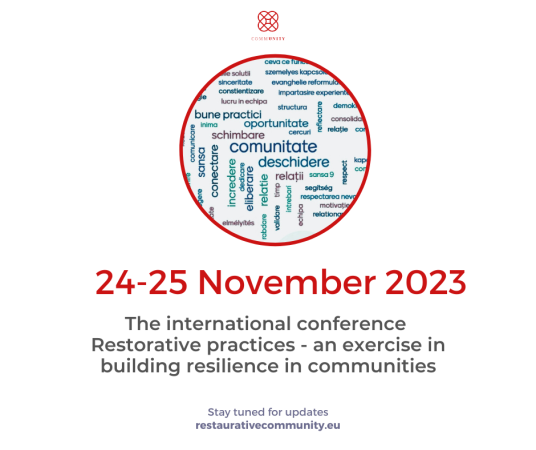
A new exchange of experiences in Norway
Another part of our colleagues went on an unforgettable trip to Norway from 6-10 September 2023. There, the team consisting of representatives from Marghita City Hall and Kécenlét Association participated in an exciting exchange of experiences, where they had the opportunity to learn and share experiences and knowledge with Norwegian partners and members of the visited organisations.
"We explored new horizons and found new links for collaboration. These unique experiences enrich our team and encourage us to continue working together on our future projects and improve our services to the community of Cheț." (Krisztina Bernath, Activities officer at Kécenlét Association)
Thank you to our partner Skyhøyt live kulturscene for their welcome and continued support!
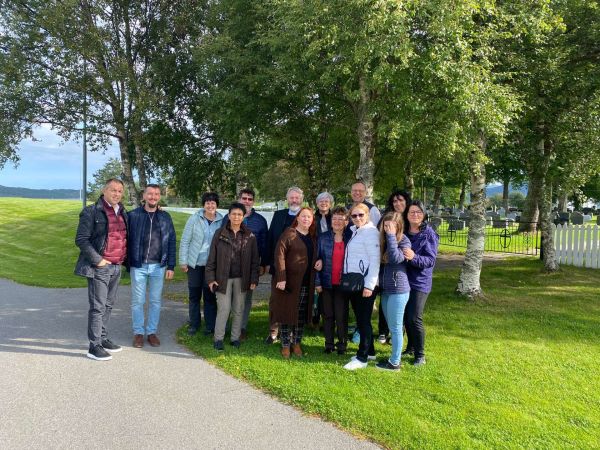
We are looking for collaborators who apply restorative practices!
We kindly invite you to share your story, which we will include in the Best Practice Guide on Restorative Approaches in Romania. We are interested in hearing real stories from the field of restorative practice in Romanian communities.
To respond to this invitation, please email proiect4042@gmail.com, a text by 30 November 2023 about how you have experienced either as a participant or facilitator, the ways in which what at first appeared to be conflict has been transformed by the restorative dialogue process.
We offer you two ways to submit:
Write your own story in 2000-4000 words
- OR-
Outline a few lines about what the problem was and how it was resolved, and we will write it for you. Once the story is accepted, we will work with you to complete it.
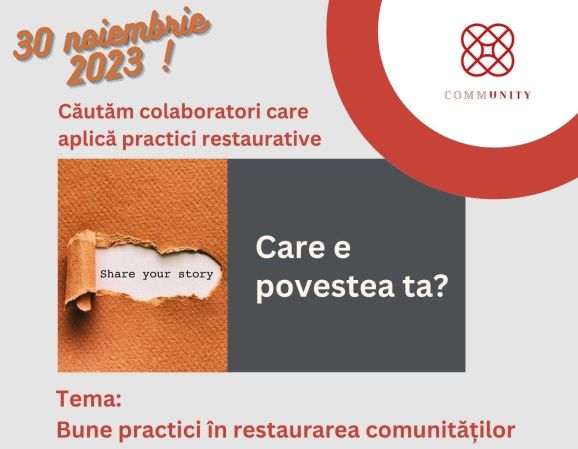
Study visit to the Council of Europe
On 12-14 September, our project representative Andra Berce, together with a delegation composed of members of the Norwegian Association of Local and Regional Authorities (KS), FRDS, as well as representatives of other projects funded by EEA/Norwegian grants in Romania, was hosted by the Council of Europe's Department of Education on a study visit on "Local Development, Poverty Reduction and Roma Inclusion".
This visit included a series of meetings with key personalities from different Council of Europe bodies, the European Court of Human Rights, the European Commission against Racism and Intolerance, the Education and Training Division, the Roma and Travellers Team, among others. During the visit, information on Council of Europe standards and strategic documents as well as collaborative initiatives related to Roma education, inclusion and empowerment were further explored. The study visit also served as an excellent platform for sharing experiences, challenges and best practices in Roma social inclusion.
Here are some thoughts on the experience:
"I had the amazing opportunity to be selected for the study visit to the Council of Europe, organised in the framework of the Local Development, Poverty Reduction and Roma Inclusion Programme funded by EEA & Norwegian Grants 2014-2021. I am grateful for the opportunity to have direct contact with European institutions that I found less tangible, but we were met with a very openness and a wealth of information and ideas that are meant to open new doors in our goal to provide a better life for the less fortunate. From curricula, to practical activities, to in-depth study of documents and reinforcement of European values, to effective community involvement in decision making, all of these will help us to deliver improved quality services to the communities in which we work and make a positive difference wherever we are. I take with me a number of questions, but I also find them in the restorative approach we have learned in our project: Is our work inclusive enough? Is anyone perhaps left out and if so, what can we do to stop this happening in the future? Have we sufficiently involved stakeholders in shaping the activity? Are there needs we have not taken into account? I return home strengthened that we are off to a good start on this project, but also inspired, energised and confident in the mutual support we can offer each other and other colleagues in working with communities." (Andra Berce, Communication Responsible).
Details: click here.
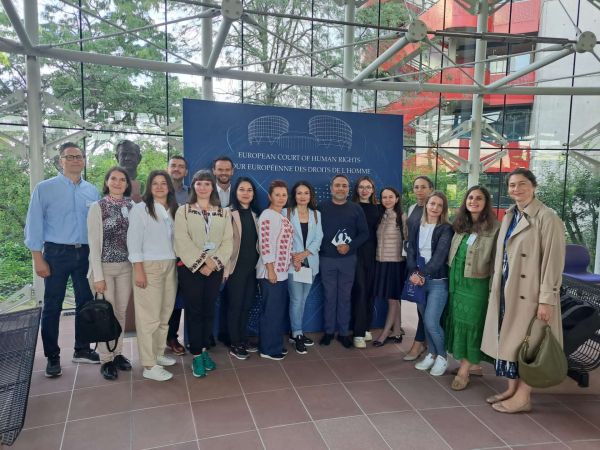
Learning best practices from Norwegian experts
Our Norwegian partner, Skyhøyt live kulturscene, visited us in Cheț and Ioannis to hold empowering seminars about working with vulnerable groups. We were honoured to have Kristin Dahl, clinical specialist in family therapy, and Haakon Stenmark, psychologist, expert in clinical psychology and managing director of the Centre for Crisis Psychology in Trondheim, as special guests. The topics addressed by the two professionals were trauma management and domestic violence.
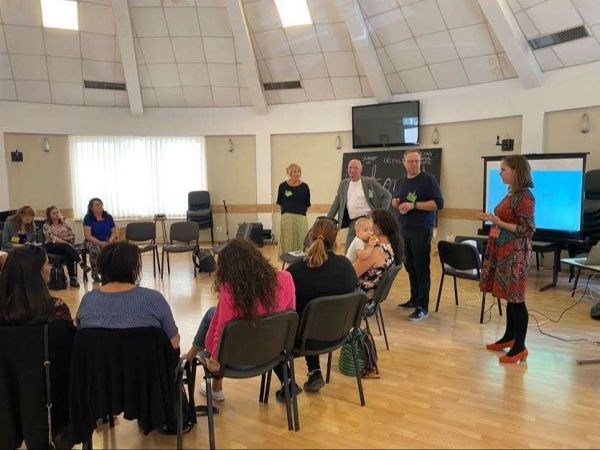
Collaboration and mutual support among Romanian partners
After the opening conference of the project, the Romanian partners from the communities of Cheț and Ioaniș got together to get to know each other better and to learn from each other. Through interactive workshops, we explored ways to improve inclusion and support. This event reinforced our commitment to improving services for vulnerable groups and boosts our desire for positive change.
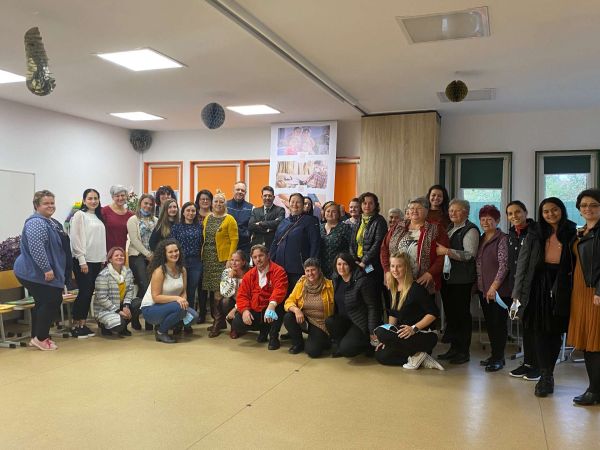
Strengthening partnership and exchange of best practices between Romanian partners
Romanian project partners from the communities of Cheț and Ioaniș met for an exchange of best practices. The focus was on mutual support and learning, with a special attention for the use of the restorative approach and interactive activities. This collective effort aims to improve services for vulnerable groups, guided by the principles of the restorative approach.
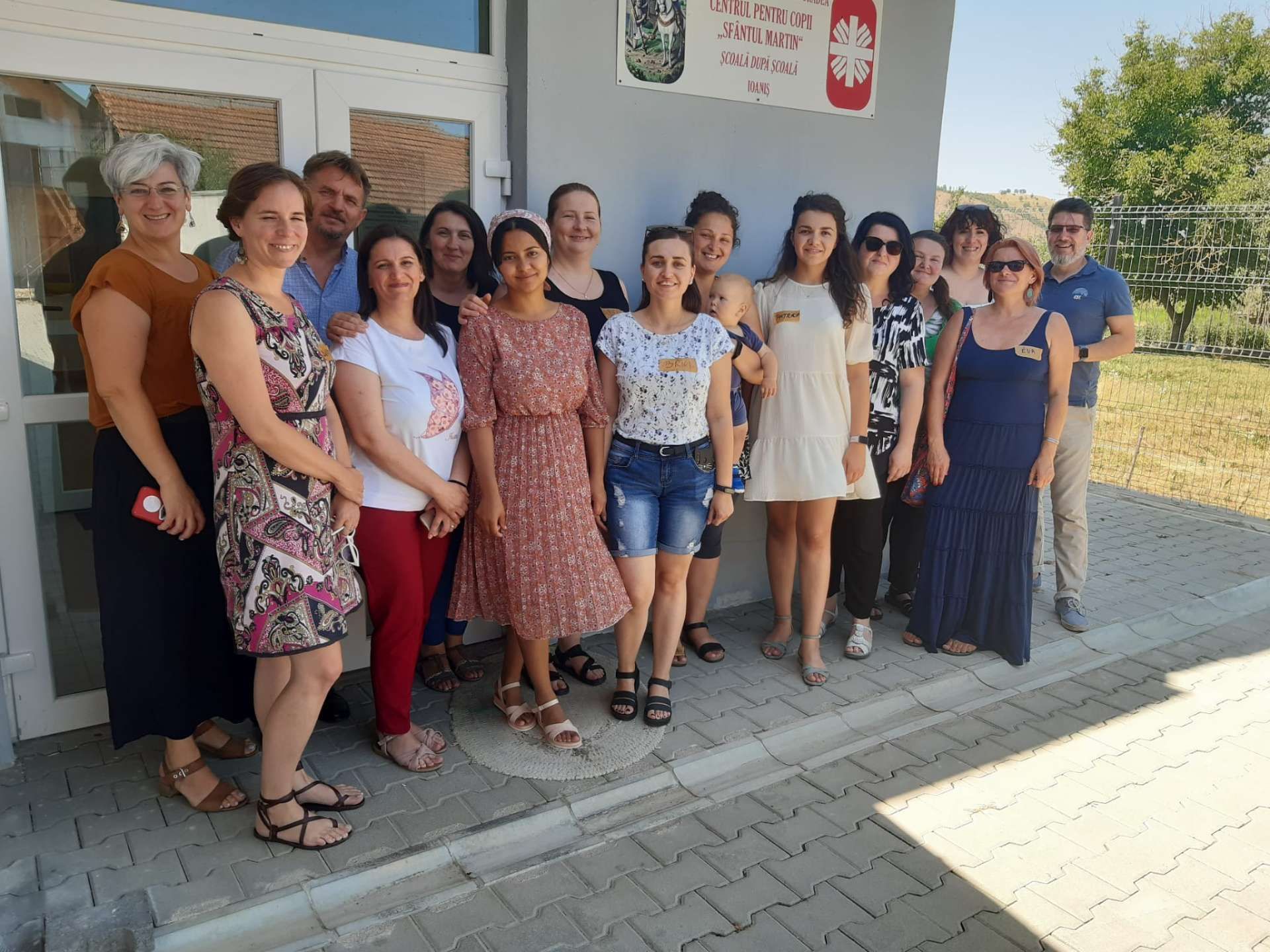
Inspiration from Norway (Exchange of experience)
We had the privilege to participate in a trip to Norway, where we were deeply inspired by the country's commitment to preventing social problems and promoting inclusion. The experience gave us a deep insight into volunteering and social services and we aim to integrate and adapt some of the ideas we learned in the communities of Cheț and Finiș for a more inclusive future.
Thanks to our partner, Skyhøyt live kulturscene, and to Norway for welcoming us with open arms!
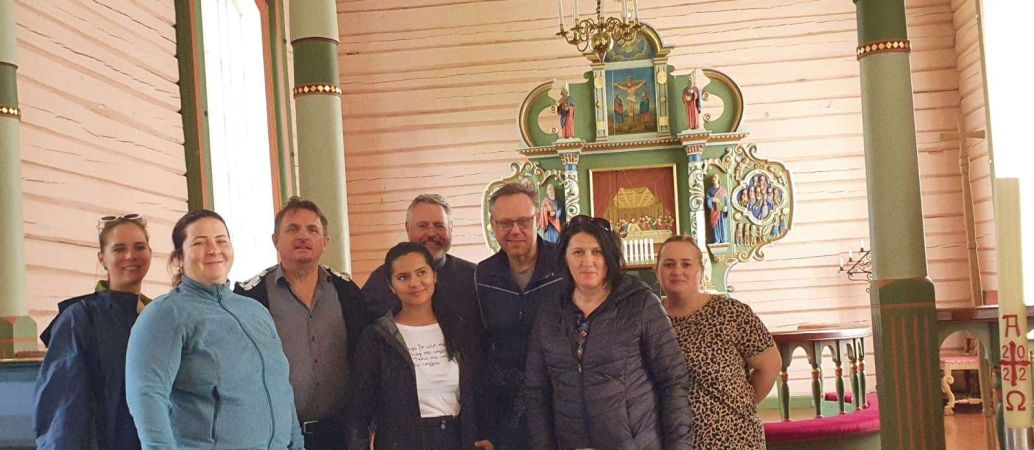
Press conference
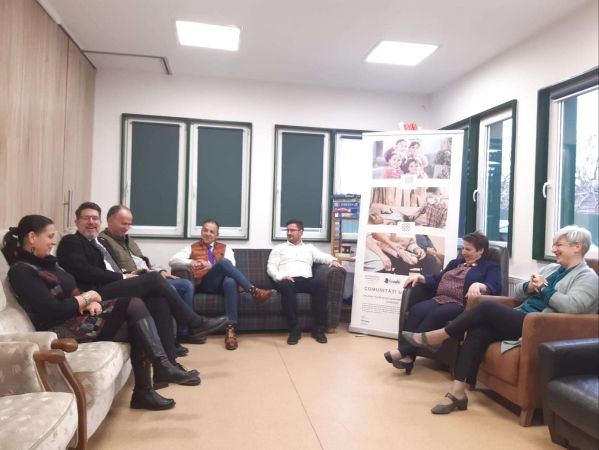
Project launching conference
The event was an opportunity to bring together all project partners and people interested in our project. The conference programme included a presentation of the project activities and expected results, as well as the model of restorative practices we are introducing in our current activities.
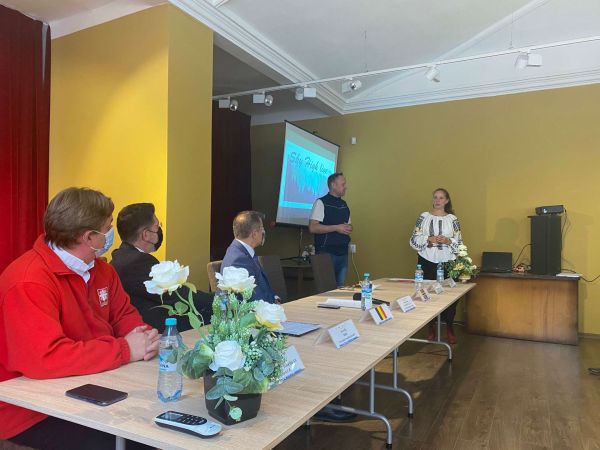
The First Scientific Conference
The scientific conference on the challenges of applying restorative practices in education, entitled "Applying Restorative Practices in Communities. Experiences in the formal and non-formal education system", was dedicated to people interested and trained in the field of restorative practices. The aim of the event was to present a perspective on the application of restorative practices in education, to exchange experiences and to have a good time together.
